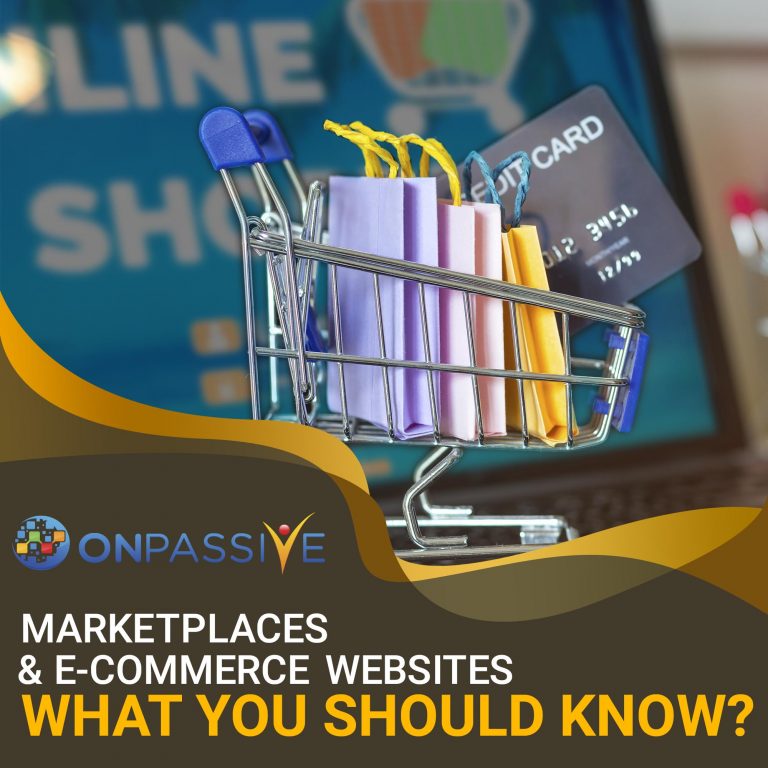
Hello there!
In this article, we will be taking a closer look into the differences between E-Commerce marketplaces and marketplaces. ONPASSIVE offers its very own tools to help you get started with your own online business.
If you are an aspiring entrepreneur, who is planning to start your own online business, you should be starting your very own e-commerce website or marketplace. However, knowing the difference between marketplaces and e-commerce websites is essential when you are getting started.
The major difference between traditional e-commerce websites and marketplaces is that traditional e-commerce websites are simply a storefront, for a person to sell their wares. Marketplaces, on the other hand, are unique as they let people sell their own unique goods on the side.
Let us take a closer look into the major differences between marketplaces and E-commerce websites, which are:
The Major Difference in Branding:
- Traditional e-commerce websites have an increased advantage of helping a single brand or business to be more focused.
- E-commerce solutions help to improve customer brand loyalty, which results in higher lifetime value to the customer.
- In the case of a marketplace, all the brands and businesses are presented together as one.
- With a marketplace, the buyer benefits as they do not need to look around for complementary or competing products.
- Traditional marketplaces can help to benefit the seller, as it can help to leverage the strength of the marketplace and the volume of visitors as well.
The Initial Cost of Starting Out:
- Marketplaces allow users to take advantage of assets which are slack in nature and they are owned but not used frequently.
- These marketplaces help to create strong customer value, with lesser costs to the marketplace operator. Owners of the marketplace benefit greatly with greater utility, as they lack the capacity to use them all the time.
- Buyers also gain access to something which they cannot afford, at a lesser value.
- Traditional E-commerce usually implies somebody to buy sufficient stock; otherwise, it may lead to long load times.
- Items which are sold exclusively by the buyer assure that they are always available.
Helping Users Find What They Want:
- Marketplaces advertise the awareness of products, with the help of many sellers. As there are more users interacting on the website, this helps to spread recognition across a bigger platform.
- When users interact with a marketplace, it improves the ability to locate what to buy and what is critical of importance. The operator of a marketplace selects a platform which allows the criteria of search to be tailored according to the needs of the buyer.
A Unique Technological Approach:
- E-commerce stores provide an online business presence and are streamlined for that very purpose.
- Marketplaces provide a one-stop-shop for buying products, especially which have been tailored from the ground up.
- The technology utilised in building marketplaces is unique, as it offers powerful APIs, which enables the short implementation and also has a scalable database.
- Some of the most modern marketplace solutions support omnichannel technology, integrates physical-in-store, web and helps implement native mobile fulfilment and social channels into one single platform.
Positive Cash Flow:
- E-commerce platforms may require a bit more initial investment to eventually break even.
- Marketplaces have better profit margins, as the revenue is made up of a percentage of transactions.
In conclusion, whether you choose a marketplace or an E-commerce website is completely up to you. The main aim of this business must be to grow every single day, manage logistical aspects of the business, create great shopping experiences and an excellent customer service experience!



Angela Nycz
4 years ago